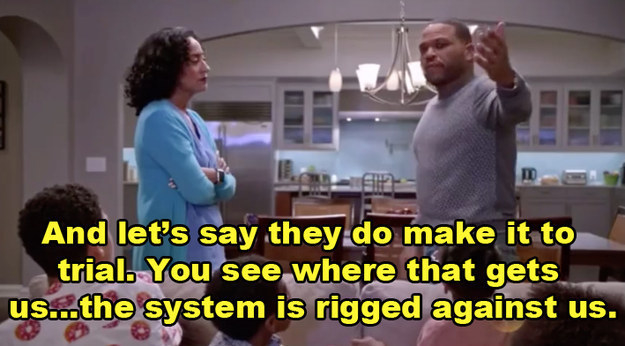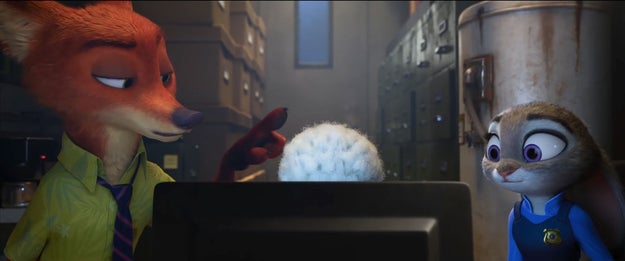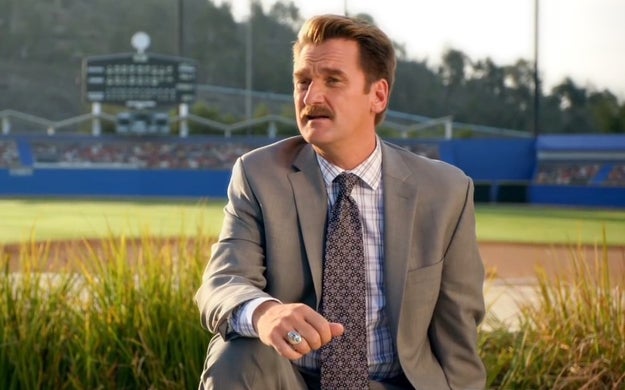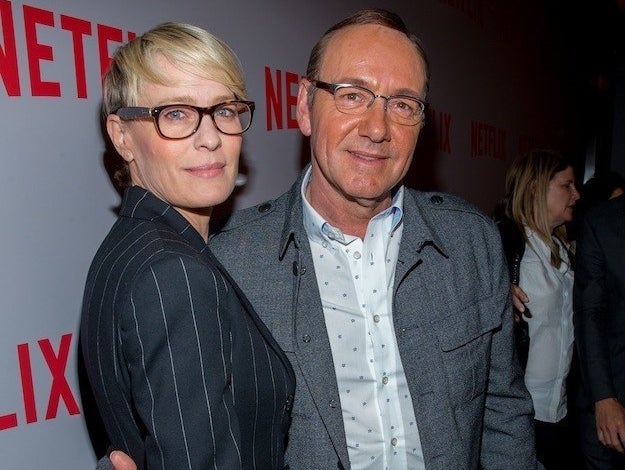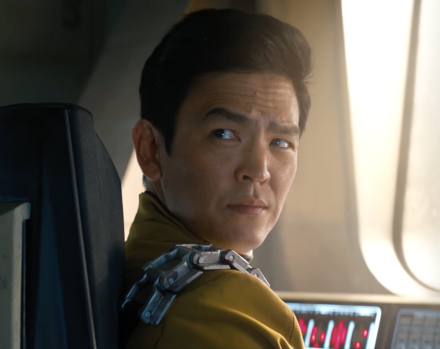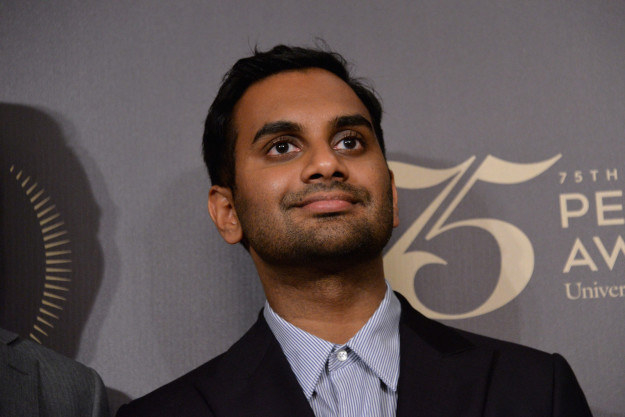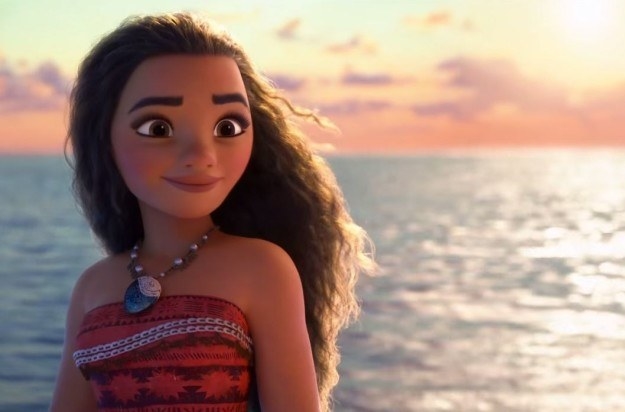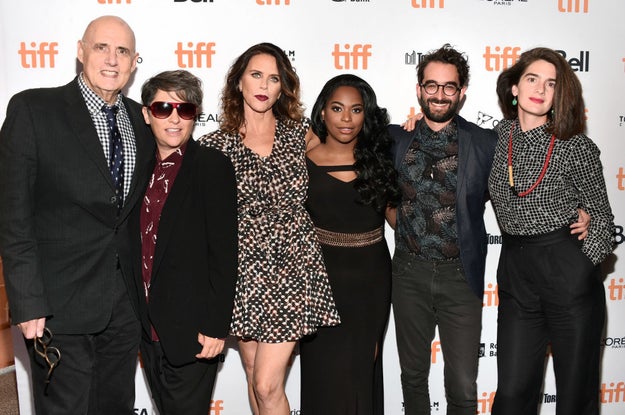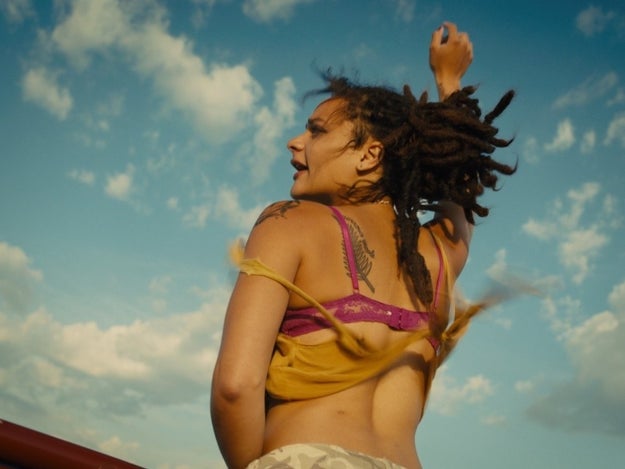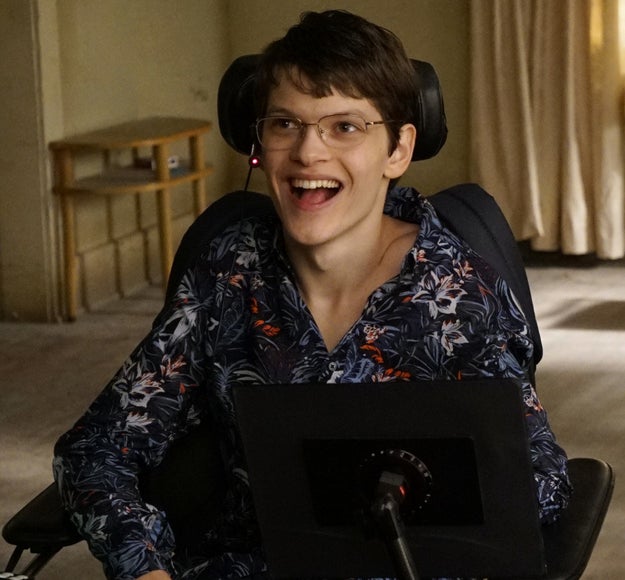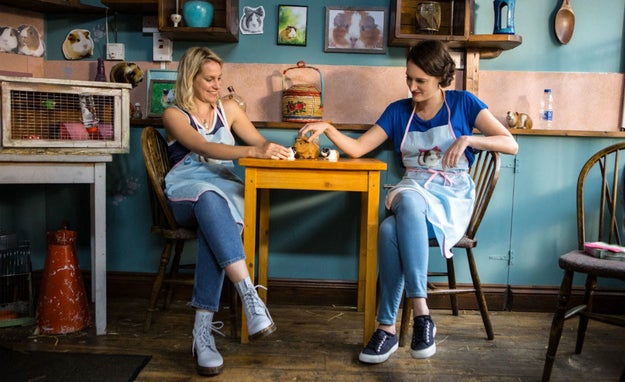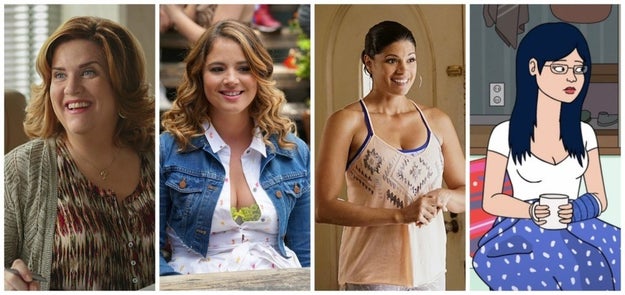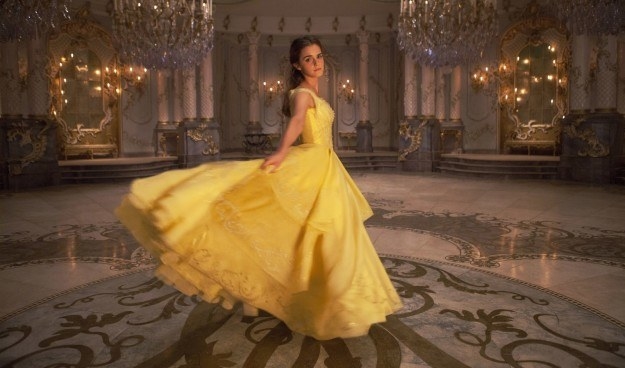
2. When two love interests started to change the way we see Asian-American men onscreen.
When Vincent Rodriguez III read the character description for Crazy Ex-Girlfriend’s Josh Chan, he couldn’t believe it. “‘Josh is an athletic-looking Asian bro in his late twenties.’ I’m like, first of all, who wrote this breakdown? I’ve never seen this before,” he told BuzzFeed News. “So many things about it are, I daresay, first-timers on American television. And it’s not because this person never existed. It’s just no one has thought to tell this story.”
Later in 2016, The Edge of Seventeen featured actor Hayden Szeto as Erwin Kim, the love interest for Hailee Steinfeld’s character. “Being an Asian-American actor, you’re kind of jaded,” Szeto told BuzzFeed News. “You’re just used to a certain kind of role … you know, the best friend, the tech guy, or anything that underrepresents you as a human being.” But with Erwin, he got to be the guy who got the girl. (Reporting by Susan Cheng)
3. When Black-ish was open and honest about police brutality in America.
During an early 2016 episode, called “Hope,” Dre (Anthony Anderson) and his wife Bow (Tracee Ellis Ross) get into a discussion about police brutality as the family waits to see if a police officer will be indicted for killing a black man who was unarmed. (By Michael Blackmon)
4. When three of the four top honors at the Independent Spirit Awards went to actors of color.
Beasts of No Nation star Abraham Attah won Best Male Lead, Beasts star Idris Elba won Best Supporting Male, and Tangerine star Mya Taylor won Best Supporting Female. Taylor also became the first transgender actor to win a major film award. “There is transgender talent,” she said in her acceptance speech. “You better get out there and put it in your movie.” (By Jarett Wieselman)
5. When Disney’s Zootopia turned out to be a talking animal movie about racial biases.
Judy (Ginnifer Goodwin), Nick (Jason Bateman), and the other Zootopia characters reference things — like how the mayor hired someone to secure “the sheep vote” — that signal the movie’s aims unmissably to older viewers. Judy, for example, becomes the first rabbit to graduate from the police academy courtesy of a “mammal inclusion initiative.” And she firmly asserts that “a bunny can call another bunny ‘cute,’” but that it’s not OK for other animals to do it. Also, there’s this scene about why you can’t just touch a sheep’s wool. (By Alison Willmore)
6. When Lilly Wachowski came out.
Lilly Wachowski, the filmmaker who rose to prominence with the 1999 film The Matrix, came out as transgender to Chicago’s Windy City Times in March. In her statement, the writer, director, and producer — whose sister, Lana, came out as transgender in 2012 — said, “We need to elevate the dialogue beyond the simplicity of binary. Binary is a false idol.” (By Ariane Lange)
7. When Crazy Ex-Girlfriend featured the coming-out story of a middle-aged bisexual male character.
“I’ve gotten letters from bisexual friends that have written to me, and said that actually, when I kissed White Josh, they were holding their breath because they were just waiting for me to go, ‘Nope! Not gay!’” Pete Gardner, who plays Darryl, told BuzzFeed News. Their sexual orientation, he said, is portrayed “like a joke. And that’s just not what it is [with Darryl].” (Reporting by Ariane Lange)
8. When Robin Wright talked about how she fought for equal pay and won.
“I was like, ‘I want to be paid the same as Kevin [Spacey],’” the actor recalled during a conversation with the president of the Rockefeller Foundation, Judith Rodin. “It was the perfect paradigm. There are very few films or TV shows where the male, the patriarch, and the matriarch are equal. And they are in House of Cards. I was looking at the statistics and Claire Underwood’s character was more popular than [Frank’s] for a period of time. So I capitalized on it. I was like, ‘You better pay me or I’m going to go public.’ And they did.” (By Krystie Lee Yandoli)
9. When a couple childhood favorites were rebooted and got gayer.
And in the Gilmore Girls revival, also on Netflix, Stars Hollow finally got a little gayer. Gilmore Girls: A Year in the Life doesn’t deserve too much credit for its minor uptick in gay representation, but Michel’s (Yanic Truesdale) casual coming out is still something to be celebrated — it’s both matter-of-fact and integral to his storyline, as we learn his husband wants to adopt a child and Michel isn’t exactly a kid person. (By Louis Peitzman)
Pee-wee Herman has always been something of a queer character, but his sexual identity has always been speculative. But when he returned with Pee-wee’s Big Holiday on Netflix, he brought a truly queer love story. The subtlety of Pee-wee and Joe Manganiello’s romance in Big Holiday is not repressive so much as subversive. The use of queer themes in what’s largely a kids movie introduces young audiences to the idea of bucking societal trends in a playful but powerful way.
And in the Gilmore Girls revival, also on Netflix, Stars Hollow finally got a little gayer. Gilmore Girls: A Year in the Life doesn’t deserve too much credit for its minor uptick in gay representation, but Michel’s (Yanic Truesdale) casual coming-out is still something to be celebrated — it’s both matter-of-fact and integral to his storyline, as we learn his husband wants to adopt a child and Michel isn’t exactly a kid person. (By Louis Peitzman)
10. When the new class of Oscar voters reflected the population.
Nearly half were female, and about two-fifths were people of color, including Idris Elba, Vivica A. Fox, Tessa Thompson, America Ferrera, Daniel Dae Kim, Ryan Coogler, Karyn Kusama, Lana and Lilly Wachowski, and Taika Waititi. And it was about damn time. (By Susan Cheng)
11. When Sulu became the first clearly LGBT main character in Star Trek’s 50-year history.
“We really were trying to make sure that no one thought it was something that happened that made him gay,” Star Trek Beyond co-writer and star Simon Pegg told BuzzFeed News. (Reporting by Adam B. Vary)
13. And on the pages of Marvel Comics, things got a bit more inclusive too.
Also in 2016, Marvel announced that the new Iron Man would be a 15-year-old black girl and America Chavez, a young queer Latina character from another dimension, finally got her own Marvel solo title. (By Alanna Bennett)
14. When actors of color were nominated for Emmys in every lead performance category.
For the first time in the 68-year history of the Emmys, actors of color were nominated in all six leading actor categories for the 2016 awards. They included Rami Malek (Mr. Robot) for Lead Actor in a Drama; Viola Davis (How to Get Away With Murder) and Taraji P. Henson (Empire) for Lead Actress in a Drama; Anthony Anderson (Black-ish) and Aziz Ansari (Master of None) for Lead Actor in a Comedy; Tracee Ellis Ross (Black-ish) for Lead Actress in a Comedy; Idris Elba (Luther), Cuba Gooding Jr. (The People v. O.J. Simpson: American Crime Story), and Courtney B. Vance (The People v. O.J. Simpson: American Crime Story) for Lead Actor in a Limited Series or Movie; and Audra McDonald (Lady Day at Emerson’s Bar and Grill) and Kerry Washington (Confirmation) for Lead Actress in a Limited Series or Movie. Malek and Vance eventually took home the honors. (By Louis Peitzman)
15. And Ansari made Emmys history as the first South Asian actor ever nominated for a leading role on a television series.
In years past, a handful of South Asian actors have received Emmy nominations, but none have been for leading roles on a television series. In 2005, Naveen Andrews earned a nod for a supporting role on Lost, and Ben Kingsley was nominated on four separate occasions for his parts in four miniseries. Even though he didn’t win, Ansari still made history. (By Susan Cheng)
17. And when Moana was a Disney princess with a more “realistic” body shape, as well.
“That was a deliberate attempt, partly inspired by wanting her to be different,” director John Musker told BuzzFeed News. “And then we wanted her to be an action hero, capable of action. … Certainly some of the women involved in the film, our producer and some [others], were very supportive and more involved in that as well — pushing, ‘Let’s not have her be a wasp-thin woman. Let’s have her be a more realistic body shape and feel like she’s not going to be blown over by a strong wind.’” (Reporting by Keely Flaherty)
18. When Transparent finally cast a trans woman of color: Alexandra Grey.
“I get messages every day from little trans girls and boys who say, ‘I’m not going to kill myself because I see you,’” Grey said at the 2016 Toronto International Film Festival. “We’re doing something right if we’re putting this kind of program out and sharing that message.”
At the Emmys, Jeffrey Tambor, a cisgender male who won an award for his portrayal of the trans woman at the center of the show, said, “To you producers, you network owners, and you agents, and you creative sparks — please give transgender talent a chance. … I would not be unhappy were I the last cisgender male to play a female transgender [character] on television.” (Reporting by Katie Hasty and Krystie Lee Yandoli)
19. When Moonlight — and its portrayal of black masculinity and sexuality — broke barriers and our hearts a thousand times.
Barry Jenkins’ Moonlight takes the exploration of race and identity of Medicine for Melancholy and expands it into this soaring and gorgeous work of cinematic maturity that’s one of the best of 2016. (By Alison Willmore)
21. When American Honey showed the realest female sexuality.
American Honey is an extreme example of a woman’s sexual awakening, but in Star’s (Sasha Lane) sometimes confident, sometimes self-defeating, maybe impossible attempt to claim her life and her body, it feels real. “There’s not a lot of female sexuality in films generally,” director and writer Andrea Arnold told BuzzFeed News. (Reporting by Ariane Lange)
22. When Speechless star Micah Fowler casually made sitcom history.
Fowler — who has less pronounced cerebral palsy than JJ, his character on the ABC sitcom — is one of the only actors with a disability playing a character with a disability on primetime network TV. “I just really hope in the future that more disabled people will be on TV,” he told BuzzFeed News. (Reporting by Ariane Lange)
23. When Phoebe Waller-Bridge took unladylike ladies onscreen a few steps further.
2016 introduced us to Fleabag and Crashing, two funny, foul-mouthed, and sexually frank shows from Phoebe Waller-Bridge that vaulted her into the treasured, slowly expanding, still predominantly white ranks of dramedy’s unladylike ladies — its Schumers and Dunhams, its Raes and Blooms, and its Wiigs. Waller-Bridge’s saltiness includes plenty of gags about and scenes of sex, but it’s as part of a larger interest in intimate awkwardness — she’s a more general connoisseur of the animal indignities of the human body, the way its fleshy unpredictability is always there, often in defiance of our attempts at respectability and reserve. If this is how far Waller-Bridge has come in just one year, we should all brace ourselves for this next one. (By Alison Willmore)
25. When BoJack Horseman, Jane the Virgin, and other series portrayed guilt-free abortions.
“That was the plan, from the beginning: Let’s tell a story about someone who knows this is right for her, has a supportive partner, but does kind of have to go through the process,” Joanna Calo, who wrote the BoJack Horseman episode in which Diane (Alison Brie) has an abortion, told BuzzFeed News. “We tried to make it — in our ridiculous cartoon world — very grounded.” And on Jane the Virgin, Xiomara (Andrea Navedo) also had an abortion in 2016, and she was confident in her choice. “In the writers room, we talked about how we didn’t want the drama of the episode to be about Xo’s choice — because we didn’t think she’d be conflicted,” showrunner Jennie Snyder Urman told BuzzFeed News. You’re the Worst and consistent groundbreaker Crazy Ex-Girlfriend featured similar guilt-free storylines. (Reporting by Ariane Lange and Alanna Bennett)
26. And when Emma Watson made sure Belle had evolved in Disney’s upcoming live-action Beauty and the Beast.
“I was like, well, there was never very much information or detail at the beginning of the story as to why Belle didn’t fit in, other than she liked books. … So, we created a backstory for her, which was that she had invented a kind of washing machine, so that, instead of doing laundry, she could sit and use that time to read instead,” Watson told Entertainment Weekly. “So, yeah, we made Belle an inventor.” (By Keely Flaherty)


